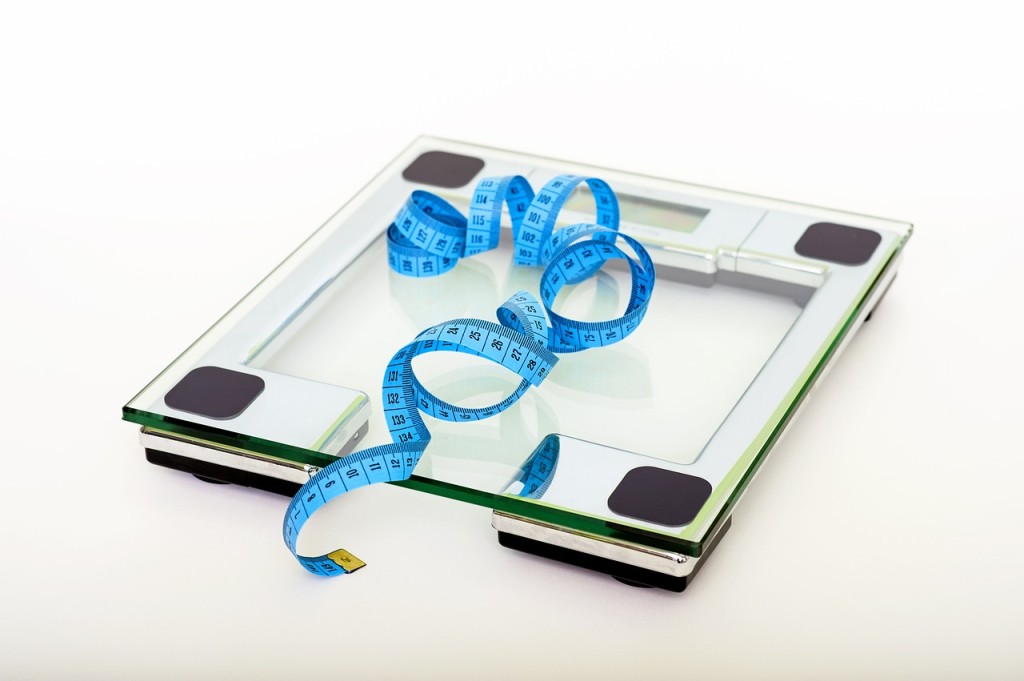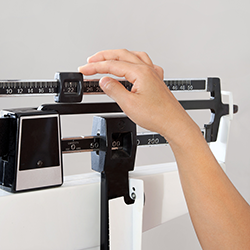- Calls to this hotline are currently being directed to Within Health, Fay or Eating Disorder Solutions
- Representatives are standing by 24/7 to help answer your questions
- All calls are confidential and HIPAA compliant
- There is no obligation or cost to call
- Eating Disorder Hope does not receive any commissions or fees dependent upon which provider you select
- Additional treatment providers are located on our directory or samhsa.gov
Why You Are So Much More Than Your Weight

Wherever you are as you read this – pause. Take stock of your day and consider, roughly, how many times you have evaluated your body negatively today, on weight or other factors, and allowed it to impact your mood or feelings of worth and confidence. For many, the number is likely higher than it should be.
Our culture perpetuates the dangerous belief that someone’s weight dictates their worth, so much that body dissatisfaction is a key factor in dangerous health practices to lose weight [1]. These practices can cause depression or death, but people do them anyway solely to reduce the number on the scale.
Humans are the most complex beings on this planet, and our society has reduced assessment of our worth to this one aspect, making people unhappy and self-loathing in the process. Here are only a few reasons that you are so much more than this one arbitrary aspect.
You are Part of a Story
Imagine the many lives that you have touched in your lifetime. From your family (parents, siblings, grandparents, aunts, uncles, cousins, etc.) to the friends you have made throughout the years, the colleagues you have worked with, teammates or community members you have shared hobbies with, to the server that helped you last time you ate out.
You have been a part of all of these people’s stories. Stories that they will share with their networks of people, stories that may have changed their lives forever, stories that they may pass down to their family and children for years.
Humanity is beautiful because we are all creating our own parts of an interwoven tapestry as we live our lives. You are a part of that, and no part of that tapestry involves justification or apology about your weight.
Imagine the last great story you heard or read – I doubt that, in the middle of that story being told to you, you said, “but, how much did they weigh?” Our stories are so much greater than that of unnecessary detail.
Weight Isn’t Interesting
 No offense intended, but your weight is just not interesting to me. I am interested in what you are passionate about, who holds an important place in your heart, what is your guilty pleasure TV show, what has your pain taught you, or what makes you belly-laugh.
No offense intended, but your weight is just not interesting to me. I am interested in what you are passionate about, who holds an important place in your heart, what is your guilty pleasure TV show, what has your pain taught you, or what makes you belly-laugh.
These things give me a window into you – your joy, your pain, your strength, your sadness – all of the beautiful aspects that make us unique and human. These things take you from being a blank canvas to a complex and unique individual that only you can be.
Those that value and love you do so because every part of your life and experience that has created who you are in this very moment cannot be replicated.
There is only one you, and you only have a limited time on this planet to bless the world with who you are. Don’t waste that time reducing yourself to an arbitrary number on a scale.
Resources:
[1] Jankauskiene, R., Bacaviciene, N., (2019). Body image concerns and body weight overestimation do not produce healthy behavior: evidence from adolescents in Lithuania. International Journal of Environmental Research and Public Health, 16:5.About the Author:
 Margot Rittenhouse, MS, PLPC, NCC is a therapist who is passionate about providing mental health support to all in need and has worked with clients with substance abuse issues, eating disorders, domestic violence victims, and offenders, and severely mentally ill youth.
Margot Rittenhouse, MS, PLPC, NCC is a therapist who is passionate about providing mental health support to all in need and has worked with clients with substance abuse issues, eating disorders, domestic violence victims, and offenders, and severely mentally ill youth.
As a freelance writer for Eating Disorder Hope and Addiction Hope and a mentor with MentorConnect, Margot is a passionate eating disorder advocate, committed to de-stigmatizing these illnesses while showing support for those struggling through mentoring, writing, and volunteering. Margot has a Master’s of Science in Clinical Mental Health Counseling from Johns Hopkins University.
The opinions and views of our guest contributors are shared to provide a broad perspective on eating disorders. These are not necessarily the views of Eating Disorder Hope, but an effort to offer a discussion of various issues by different concerned individuals.
We at Eating Disorder Hope understand that eating disorders result from a combination of environmental and genetic factors. If you or a loved one are suffering from an eating disorder, please know that there is hope for you, and seek immediate professional help.
Published October 23, 2020, on EatingDisorderHope.com
Reviewed & Approved on October 23, 2020, by Jacquelyn Ekern MS, LPC

The EatingDisorderHope.com editorial team comprises experienced writers, editors, and medical reviewers specializing in eating disorders, treatment, and mental and behavioral health.

